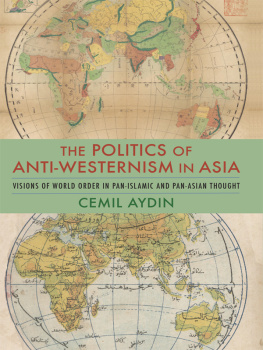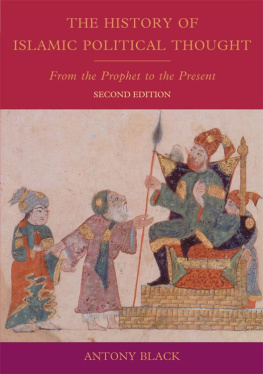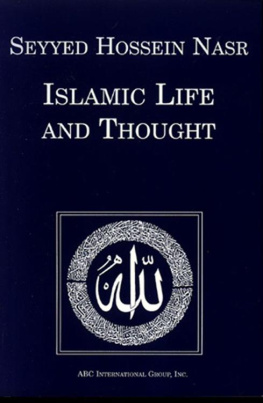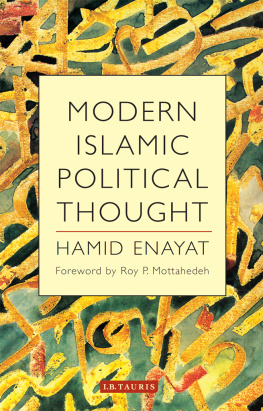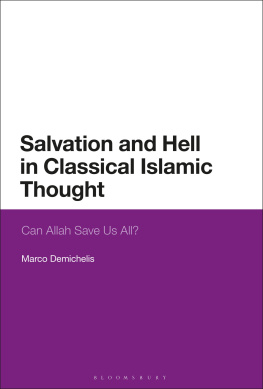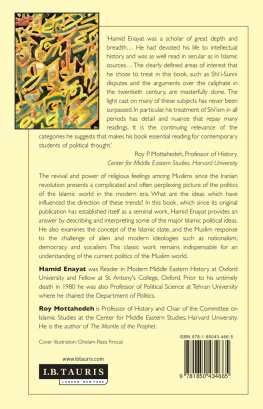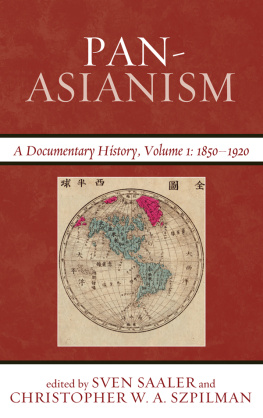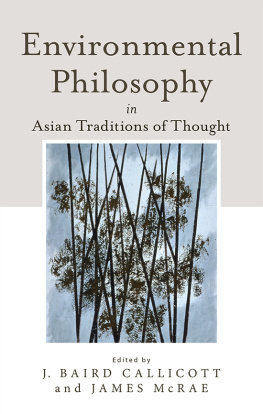Aydin Cemil - Visions of World Order in Pan-Islamic and Pan-Asian Thought
Here you can read online Aydin Cemil - Visions of World Order in Pan-Islamic and Pan-Asian Thought full text of the book (entire story) in english for free. Download pdf and epub, get meaning, cover and reviews about this ebook. year: 2007, publisher: Columbia University Press, genre: Politics. Description of the work, (preface) as well as reviews are available. Best literature library LitArk.com created for fans of good reading and offers a wide selection of genres:
Romance novel
Science fiction
Adventure
Detective
Science
History
Home and family
Prose
Art
Politics
Computer
Non-fiction
Religion
Business
Children
Humor
Choose a favorite category and find really read worthwhile books. Enjoy immersion in the world of imagination, feel the emotions of the characters or learn something new for yourself, make an fascinating discovery.
- Book:Visions of World Order in Pan-Islamic and Pan-Asian Thought
- Author:
- Publisher:Columbia University Press
- Genre:
- Year:2007
- Rating:4 / 5
- Favourites:Add to favourites
- Your mark:
- 80
- 1
- 2
- 3
- 4
- 5
Visions of World Order in Pan-Islamic and Pan-Asian Thought: summary, description and annotation
We offer to read an annotation, description, summary or preface (depends on what the author of the book "Visions of World Order in Pan-Islamic and Pan-Asian Thought" wrote himself). If you haven't found the necessary information about the book — write in the comments, we will try to find it.
Aydin Cemil: author's other books
Who wrote Visions of World Order in Pan-Islamic and Pan-Asian Thought? Find out the surname, the name of the author of the book and a list of all author's works by series.
Visions of World Order in Pan-Islamic and Pan-Asian Thought — read online for free the complete book (whole text) full work
Below is the text of the book, divided by pages. System saving the place of the last page read, allows you to conveniently read the book "Visions of World Order in Pan-Islamic and Pan-Asian Thought" online for free, without having to search again every time where you left off. Put a bookmark, and you can go to the page where you finished reading at any time.
Font size:
Interval:
Bookmark:

New York
THIS BOOK GREW out of my Ph.D. dissertation on Japanese pan-Asianism at the history department of Harvard University and my masters thesis on nineteenth-century Ottoman intellectual history at Istanbul University. A generous postdoctoral fellowship from the Harvard Academy for International and Area Studies allowed me to complete the research for this book by conducting further studies on pan-Islamism.
I owe a deep debt of gratitude to three outstanding dissertation advisers, professors Cemal Kafadar, Andrew Gordon, and Akira Iriye, who not only guided my research but also became role models as public intellectuals. Their intellectual vision in the fields of comparative and global history made working with them as a student, teaching assistant, and later colleague a formative experience. I should especially note the unfailing support and friendship of Cemal Kafadar, who encouraged me as his graduate student to get a break from the libraries by watching a soccer game with him once a week.
I would like to thank the adviser of my masters thesis, Professor Ekmeleddin hsanolu, especially for inspiring my comparative research on Ottoman and Japanese histories. Even with his very busy schedule as the secretary general of the Organization of the Islamic Conference, Professor hsanoglu took the time to read and comment on portions of my research while sharing his insights about the contemporary relevance of the historical theme of my book.
During my undergraduate education at Boazii University, I was fortunate to learn from a group of dedicated and interesting teachers. I am especially indebted to Faruk Birteks inspiring seminars on questions of modernity and social theory. Throughout my undergraduate education, I also benefited from the academic program and lectures at the Bilim ve Sanat Vakfi of Istanbul.
During my studies at Harvard, I was blessed by the ideas and encouragement of many scholars, as well as by their insightful conversation. Mikhael Adolphson, Herbert Bix, Harold Bolitho, Sugata Bose, Daniel Botsman, Albert Craig, John Dower, Roger Owen, and Genzo Yamamoto contributed to this work at various stages. Seluk Esenbel of Boazii University not only wrote the first scholarly articles on the interactions between pan-Islamic and pan-Asian movements but also advised me during my graduate research. Many friends made life in Cambridge, Massachusetts, intellectually stimulating and interesting and contributed to the content of the book. I would like to mention by name here Danielle Widmann Abraham, Rahim Acar, Mustafa Aksakal, Sahar Bazzaz, Kim Beng Phar, Evan Dawley, Mark Farha, Rusty Gates, Akbar Hyder, Davesh Kapur, Ilham Makdisi, Erez Manela, Eiko Maruko, Tosh Minohara, Ghada Osman, Mike Reynolds, Dominic Sachsenmaier, Chiho Sawada, Nilufer Shaikh, Cengiz iman, Himmet Takmr, Jun Uchida, Hikmet Yaman, and Hseyin Yilmaz. I also want to thank James Clem and Beth Baiter at the Harvard Academy, Ruiko Connor at the Reischauer Institute, and Clare Putnam at the Weatherhead Center for their administrative support.
In Japan, while based at the University of Tokyo as a visiting student, I benefited from the support and advice of Merthan Dndar, Hiraishi Naoaki, Karita Toru, Mitani Hiroshi, Naoki Sakai, tsuka Takehiro, Sakai Tetsuya, Suzuki Norio, Suzuki Tadashi, Christopher Szpilman, Tamamoto Masaru, and Yamauchi Masayuki. During my two years stay in Tokyo, Hosaka Shuji, Misawa Nobuo, Morimoto Kazuo, Nakajima Takeshi, and Yamada Chioi became friends who not only advised me on my research but also served as host families. In Istanbul, Tufan Buzpinar, Gkhan etinsaya, smail Kara, and Azmi zcan shared their notes, comments, and insights about the history of pan-Islamism.
Over the years, I have exchanged papers and corresponded with scholars in various parts of the world regarding the topic of this book. Engin Akarli, Houchang Chehabi, Sebastian Conrad, John De Boer, Kevin Doak, Prasenjit Duara, Vasant Kaiwar, brahim Kalin, Hasan Ksebalaban, Sucheta Mazumdar, Michael Penn, David Steigerwald, Stefan Tanaka, Gesa Westerman, Renee Worringer, and Hayreddin Ycesoy were very generous in sharing their research results and critically reading my own writings. At UNCC, history department chair John Smail arranged my teaching schedule to allow maximum time for writing, while John David Smith served as an experienced faculty mentor.
In the last couple of years, I have received great inspiration from two transnational communities of scholars, with whom I met regularly for joint research projects. I would like to thank the members of the Global History Network, supported by the Deutsche Forschungsgemeinschaft, and the study group Japans Challenge to the International Order during the 1930s, sponsored by the Shibusawa Foundation, for exciting discussions and conversations that generally influenced my thinking on the subject of this book as well.
I would like to add my thanks to the following institutions for their financial support. The Center for Islamic Studies (ISAM) in Istanbul gave the initial grant for my doctoral study. At Harvard, the Center for Middle Eastern Studies, the Reischauer Institute of Japanese Studies, and the Weatherhead Center for International Affairs not only served as academic hosts but also provided financial assistance in different research and writing stages. The Japanese Ministry of Education and the Toyota Foundation sponsored my research in Japan. My friend Vural Ak supported my research activities during several trips to Istanbul.
I also owe thanks to Columbia University Press editor Anne Routon for her coordination of the publication of this book and the reviewers of the manuscript for their critique and suggestions. Two editors of the International History series of Columbia University Press, Matthew Connelly and Adam McKeown, critically read the manuscript and proposed valuable suggestions for its final format. I am very grateful to Sarah St. Onge for her meticulous and patient copy editing, and Carolyn G. Weaver for indexing.
My deepest gratitude is for my parents for a lifetime of love, support, and pride in my achievements. My brother Ertan Aydin, as the other Ph.D. student and then professor in the family, always provided the necessary moral and intellectual support. Finally, I owe the greatest thanks to my wife, Juliane, for our conversations, woven into the beauty of everyday life, that inspired and encouraged me in this project. She not only helped me organize the book sections and manage the writing schedule but also edited all the chapters, even during the last days of her pregnancy. Our daughter, Leyla, brought a new sense of joy to our life in the last year of this project. It is to the love and companionship of Juliane and Leyla that I dedicate this book.
Columbia University Press
Publishers Since 1893
New York Chichester, West Sussex
cup.columbia.edu
Copyright 2007 Columbia University Press
All rights reserved
E-ISBN 978-0-231-51068-4
Library of Congress Cataloging-in-Publication Data
Aydin, Cemil.
The politics of anti-Westernism in Asia : visions of world order in pan-Islamic and pan-Asian thought / Cemil Aydin.
p. cm. (Columbia studies in international and global history)
Includes bibliographical references and index.
ISBN 978-0-231-13778-2 (cloth : alk. paper)
1. Panislamism. 2. AsiaPolitics and government. 3. International cooperation.
Font size:
Interval:
Bookmark:
Similar books «Visions of World Order in Pan-Islamic and Pan-Asian Thought»
Look at similar books to Visions of World Order in Pan-Islamic and Pan-Asian Thought. We have selected literature similar in name and meaning in the hope of providing readers with more options to find new, interesting, not yet read works.
Discussion, reviews of the book Visions of World Order in Pan-Islamic and Pan-Asian Thought and just readers' own opinions. Leave your comments, write what you think about the work, its meaning or the main characters. Specify what exactly you liked and what you didn't like, and why you think so.

